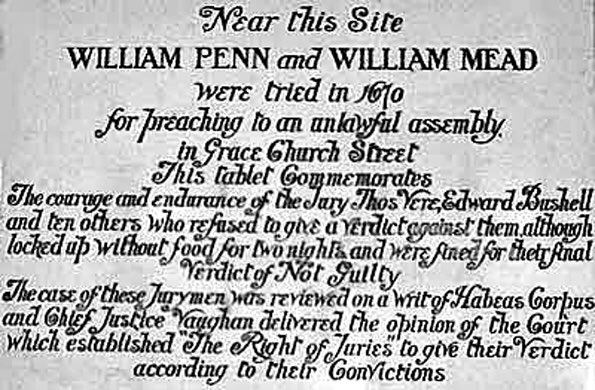Legal Twitter has quite rightly exploded in the past 24 – 48 hours concerning the issue of jury trials.
This has come about as a result of the Lord Chancellor’s appearance before the Justice Committee on Tuesday 22 June. At that hearing it became clear that the Lord Chancellor, Robert Buckland QC MP, who claims to be a staunch supporter of trial by jury, is seriously considering removing jury trials for certain Triable Either Way (TEW) offences and replacing them with a Crown Court Judge sitting with two lay Magistrates. This proposal has been mooted before when Lord Justice Auld recommended the creation of a new middle tier “Divisional Division” in his Review of the Criminal Courts in 2001. At that time the Bar Council branded it “an assault on jury trial” and Parliament subsequently rejected it. It has been debated again since and each time the idea has been rejected.
I think it important to look at why, particularly now, we should be defending the right to jury trial with every breath in our bodies. Juries have always been said to represent the public. The importance of juries was summed up quite succinctly in a tweet by barrister Nick Barraclough when he posted a picture of a plaque at the Old Bailey and said, “Now is a good time to remember the jurors who refused to convict Penn and Mead in 1670. The judge locked them up for 2 nights without food and water but still they refused to convict.” Society is at a cross roads in so many ways, notably in relation to the #blacklivesmatter movement.

Government statistics still show that Black, Asian and Minority Ethic (BAME) groups are disproportionately stopped and searched, arrested, charged and in prison. Two independent studies have now shown that there is one stage in the criminal justice process in England and Wales where members of BAME groups appear not to be treated disproportionately and that is when a jury reaches a verdict by deliberation.[1] To limit the one part of the criminal justice process that, despite any of its perceived faults, appears to be working vis-à-vis ethnicity and fairness, is extremely foolhardy.
The reason why there have been past attempts at reducing the ability of defendants to elect Crown Court trial is down to one thing only, and that is cost. Jury trials cost far more in time, delay and money than any other type of hearing. What then has now changed? Why, all of a sudden, is the curtailment of a fundamental right of the common law system back on the table? Her Majesty’s Courts and Tribunal Service (HMCTS) would have us believe that the COVID-19 situation has caused an unprecedented back log in the system. CEO of HMCTS, Susan Acland-Hood reported that before COVID-19 the baseline Crown Court backlog was 39,214 cases (not trials but cases – the trial figure will be less than that). As of 24 May that figure had risen to 40,526 cases. That is an increase of just 3.35%. In 2014 the Crown Court had a backlog of 55,116 cases (over 30,000 were trials). So, you could argue that the backlog is not yet at “unprecedented levels”. I do not recall cries of “abolish juries” in 2014.
The current backlog was already increasing before COVID-19 due to the successive cuts to justice department budgets and the selling off of the Court Estate. Resident Judges at courts were being set targets to reduce the number of sitting days and so our dilapidated court buildings (with leaking ceilings and broken-down lifts), were not running at full capacity long before COVID-19 came along. Indeed, as Lord Burnett LCJ said to the Justice Committee on 22 May, the “underfunding was coming home to roost”. That said, the point is taken that if nothing is done now, then inevitably the back log of trials will continue.
It has to be accepted that there is a problem with running jury trials (particularly multi-handed cases) with social distancing measures in place, but it must not be used as an excuse to curtail the right of jury trial. At the moment, three court rooms are being used for one trial. One room for the trial to take place (but with jurors sitting in different places and counsel giving speeches from witness boxes), one room for the public and press to watch via a TV link and then a third to act as the jury retiring room. This means, according to Ms Acland-Hood, that the estate is running at one third capacity. When the 1m rule comes into force (with extra measures) then capacity might rise to two-thirds. No-one at the committee clarified whether the “capacity” was actual building capacity or pre-Covid sitting capacity – as the two are distinctly different. The Lord Chancellor has indicated he wants to get to an over 100% capacity. To be fair to HMCTS they are trying to secure alternate venues. Indeed, this university has been approached and asked if our moot court can be used as a “Nightingale” court room. Yesterday the Lord Chancellor apparently signed off on 10 venues. They claim though they would need to find 200 venues to get to 100% capacity. I am assuming that was based on 2m rule social distancing? To me, it just does not add up.
Other ideas are being considered, including the reduction of jury members from 12 to seven. This is what happened during World War II. This is an idea which is certainly preferable, as it does not remove the crucial link between justice and the public. HMCTS calculates that this would only increase capacity by five to 10% whereas abolishing jury trials for TEW matters (where the maximum sentence is two years) will create a 40% increase in capacity. One cannot help but think that there is an underplaying of the first idea in order to push the jury eradication agenda. Once done, despite assurances, it is a slippery road to the change being permanent. There really needs to be an independent body looking at this rather than an arm of the civil service (and to a certain extent the judiciary) who have been desperate to cull access to juries for many years. If there is coherent thinking then, why are the Crown Courts not putting all other hearings to ‘virtual by default’. Twitter was alive a few nights ago with reports that some Crown Courts had resorted to ‘in person’ hearings by default. These administrative hearings should not be taking up live court room space. The same thing occurred in relation to attendance at Magistrates’ Courts resulting in an emergency meeting over the past weekend between the Criminal Bar Association et al. and the Chief District Judge (Magistrates’ Courts).
If we are to approach the issue pragmatically, then perhaps a compromise could be sought. This might not even require any further legislation. Certainly, when I was in practice I can think of the odd case where this might have been attractive. There will be TEW offences where either the defendant has elected jury trial or the Magistrates have declined jurisdiction in a borderline case. There could be some cases where a trial in front of a professional judge would be preferable to one in front of lay magistrates alone, but where the wait for a jury trial is not what the defendant or witnesses want. What is there to stop a Crown Court Judge saying at the PTPH that in their view the sentence ultimately would be non-custodial or in fact would fall under six months’ imprisonment (the current maximum for Magistrates) even after trial? There would be nothing then stopping the Judge re-opening mode of trial by remitting the case back to themselves (as they hold the inherent jurisdiction of a District Judge). They could then give the option to the defendant to have their trial before a Crown Court Judge (sitting as a DJ) with two lay magistrates or stick with their initial choice of a jury. The choice though would ultimately be the defendant’s (as it is when jurisdiction has been accepted by Magistrates). He does not lose his right to jury trial. However, with that indication as to sentence and the guarantee of a trial before a Crown Court Judge and two lay magistrates, I could think of a number of clients who might have just opted for that. It is not perfect, but I would argue it is something that could already be done and might just provide some additional capacity without removing the right to jury trial. This coupled with the reduced jury members model (in the short term) plus more Nightingale Courts would, I suggest deal with the issue.
One final thought. As I woke up first thing this morning and surveyed the news headlines, I was hoping to see some front pages or headlines about this potential threat to one of our fundamental rights. Let us be clear, our right to jury trial should be as dear to us as the National Health Service. It is the one time where society and the law connect in a unique and fundamental way. It is one of the few civic duties of a citizen mandated by law. Instead, I was met with images of Boris Johnson holding a pint of beer aloft in celebration of pubs re-opening on 4 July. I know what I would choose between a pint down the pub and the preservation of one of our most historic and fundamental rights. The question is, would the Lord Chancellor?

Darren Weir is a former criminal barrister who now lectures at Kent Law School. He specialises in the Law of Evidence, Criminal Practice and Policing. He is also the school’s Director of Mooting and Mock Trials.
[1] Thomas, Cheryl: “Ethnicity and fairness of jury trials in England and Wales 2006-2014” Crim LR 2017, 11, 860-876

